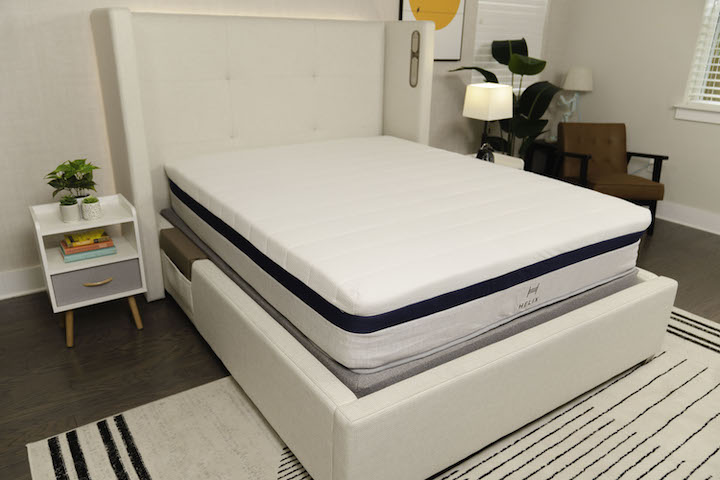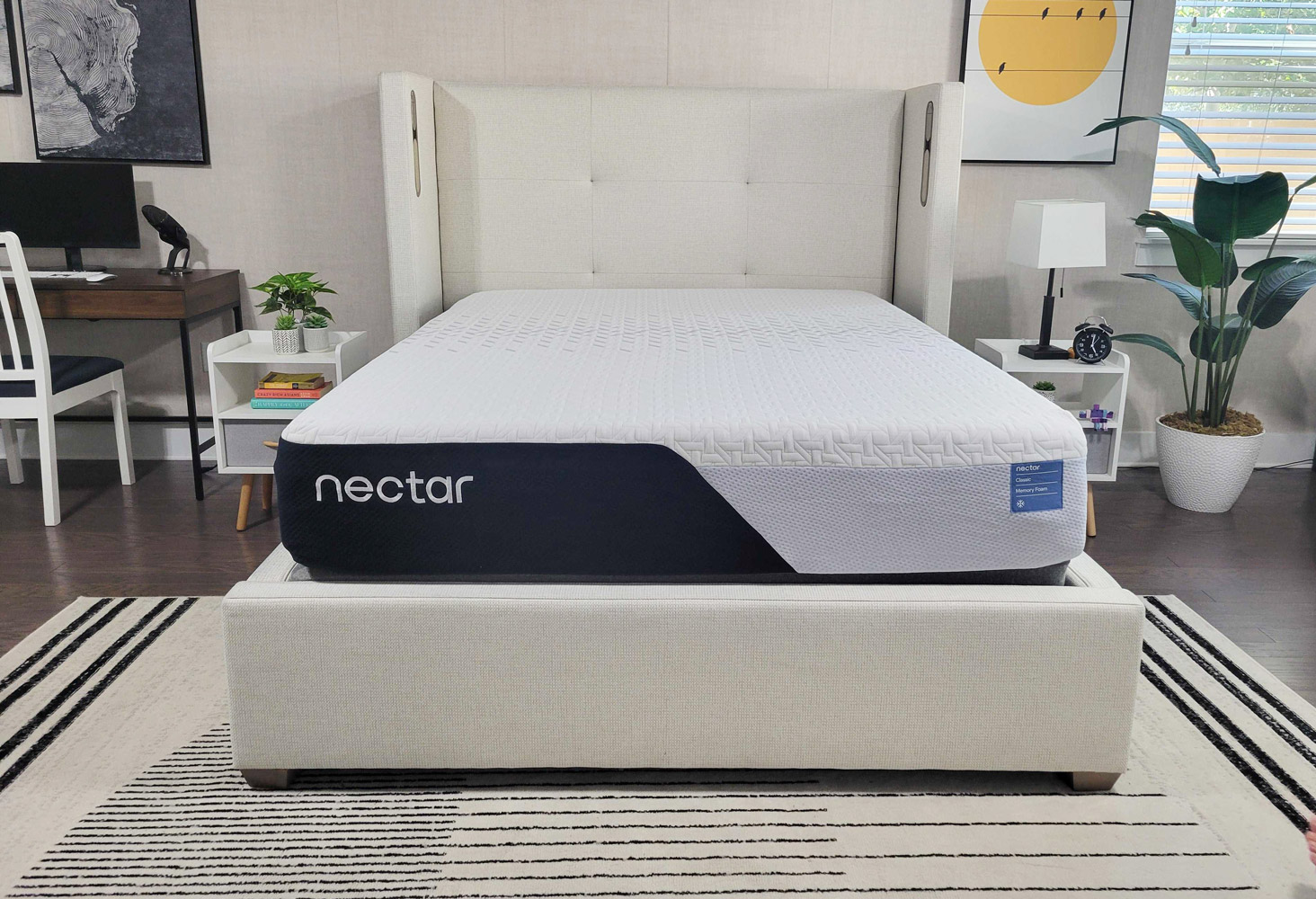Helix Midnight vs. Nectar
Product
Firmness
Score

Product
Firmness
Score
Tomorrow Sleep vs. Nectar: Overview
Tomorrow Sleep and Nectar are two popular mattress companies that sell directly online. Nectar is an all-foam mattress, while Tomorrow Sleep is made with foam and springs. Here’s how the Tomorrow Sleep vs Nectar mattresses compare, so you can find the right balance for your back and your pocketbook.Key Similarities
- Both use memory foam somewhere in the construction.
- They are of similar thickness. (Tomorrow Sleep is 10 inches thick, Nectar is 11 inches.)
- Both address sleep temperature in their construction.
- Both use materials with a lot of give.
Key Differences
- Nectar is all foam while Tomorrow Sleep incorporates coils in the support layer.
- Tomorrow Sleep has two comfort level options, while Nectar has only one.
- Tomorrow Sleep has a foam side rail system for extra edge support.
- Nectar runs a little cheaper. ($550-1,150 for Tomorrow Sleep, $500-$900 for Nectar)
- Nectar has a cooling mattress cover, while Tomorrow Sleep’s springs allow air to flow to keep the mattress cool.
- Nectar offers a longer trial — 365 days to Tomorrow Sleep’s 100.
Tomorrow Sleep Construction
- Tomorrow Sleep’s two firmness options are Medium Soft and Medium Firm, and they have similar construction. Differences can be found, however, in the thicknesses of certain layers.
- The cover is made of polyester and nylon.
- On top is 1 inch of memory foam with phase change material.
- The second is layer is gel foam, providing additional comfort and some bounce beneath the top layer. This layer is thicker in the Medium Soft option.
- The Medium Firm option has a layer of “dynamic response foam” under the gel foam layer. This foam feels similar to memory foam.
- Individually pocketed coils create the thick support layer. This 6-inch layer is highly supportive, and uses durable materials that also help with motion isolation. The Medium Firm option uses thicker coils.
- A foam side rail system reinforces edge support, maximizing the surface area sleepers can use at night.
- At the base of the mattress is 1 inch of stabilizing foam that the support coils can rest on.
Nectar Construction
- Nectar has four layers, plus a cover.
- The cover uses long staple cotton and Tencel fabric, a breathable combination that is cooling and bug resistant. The cover fabric is OEKO-TEX® Standard 100, Class 1 certified. OEKO-TEX® is a respected independent environmental testing and certification system that tests to ensure textiles do not use harmful substances.
- The top layer uses a gel memory to provide extra comfort and enhanced breathability. The quilting of the layer also adds a comforting texture.
- The next layer uses another type of gel memory foam described by Nectar as a “semi-open LUSH foam” typically manufactured for medical uses. The purpose of this layer is to absorb and redistribute heat.
- Three inches of Hi Core Adaptive foam form the support layer. This foam is supposed to be the best for contouring a mattress to your pressure points while also giving the mattress bounce.
- The roughly 6 inches thick base layer uses breathable foam designed to draw fresh air in through special channels. At 2.2 lb density, this base layer is denser compared to other mattress base layers, according to the brand.

Nectar Mattress

Product Details
Our Recommendation
Financing Options
Financing options are available for this mattress.
Construction Differences and Notes
- Nectar is firmer than Tomorrow Sleep’s Medium Firm option.
- Despite the use of springs, you’ll sink into Tomorrow Sleep quite a bit. This is especially the case with the softer version of Tomorrow Sleep.
- Both sleep cool for most people, but Nectar uses special materials meant to ensure this.
- While both mattresses are durable, Tomorrow Sleep has an edge because it uses coils.
Firmness and Feel Differences
Watch the videos below to get a sense of how the mattresses respond to pressure. Note that the Tomorrow Sleep video is for the Medium Firm version, so expect the soft version to be softer and have more give. Nectar is firmer than the Medium Firm version of Tomorrow Sleep. Both mattresses have a lot of give, but Nectar is bouncier and springs back more quickly.Motion Transfer Differences
The videos below show off the differences in motion isolation. Both do a respectable job at preventing motion from transferring.Pick Tomorrow Sleep If:
- You want extra support– While Nectar is thicker and firmer, Tomorrow Sleep’s springs still make it a better option if you want more support; this is especially the case for sleepers who weigh more.
- You want something softer– For a mattress with springs, Tomorrow Sleep has more of a sinking memory foam feel than you might expect.
Pick Nectar if:
- You are on a budget– Nectar is less expensive than Tomorrow Sleep, especially when comparing larger size options.
- You want something a bit firmer– Nectar is a bit firmer than the Medium Firm option from Tomorrow Sleep.

